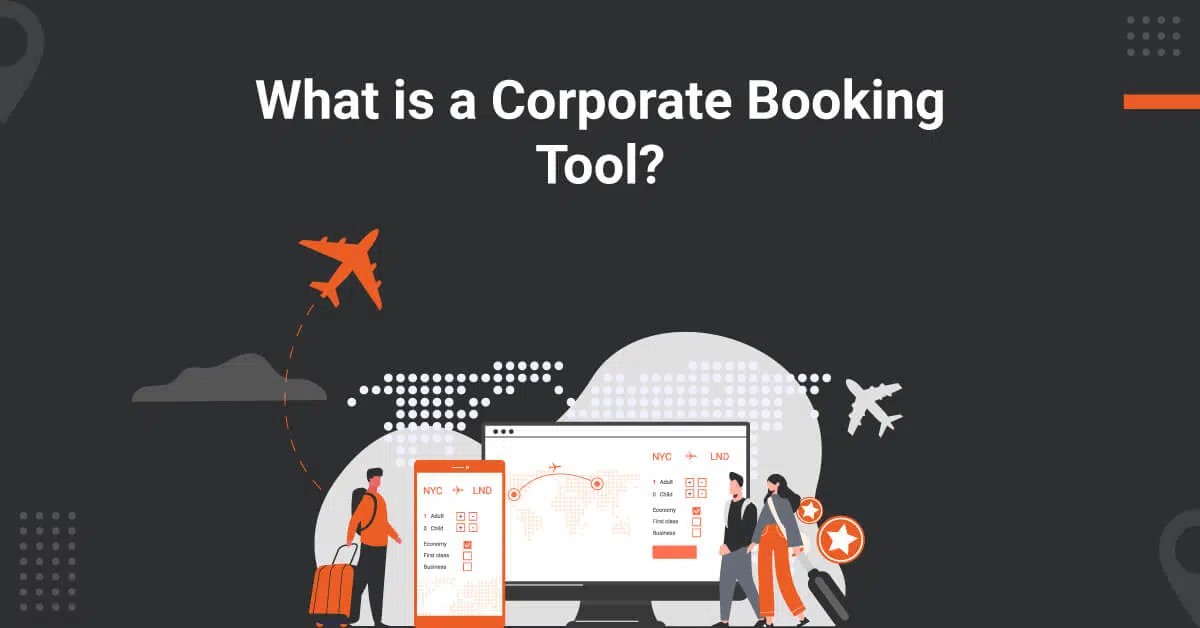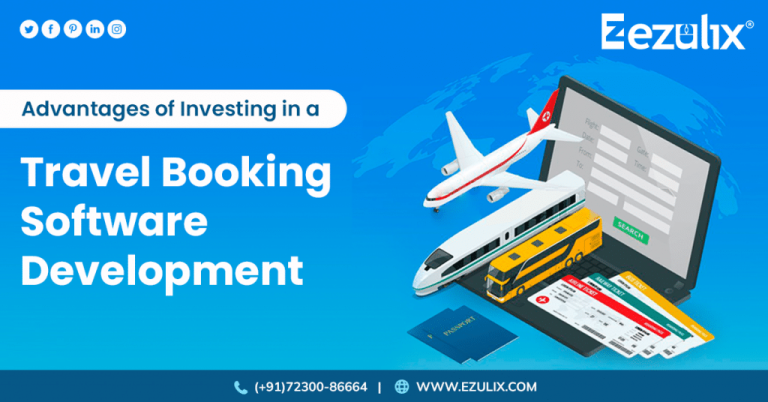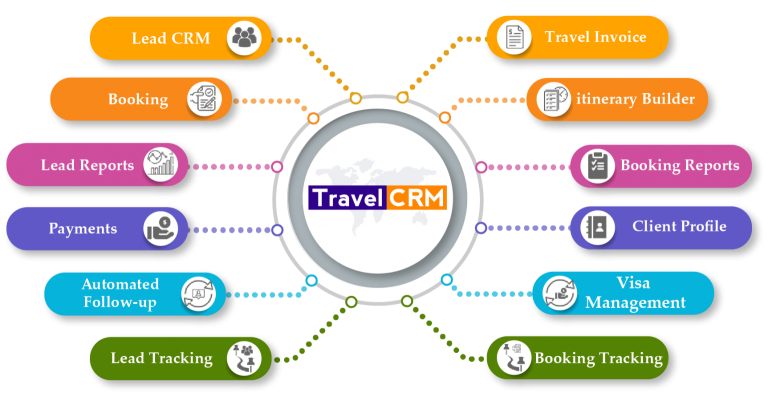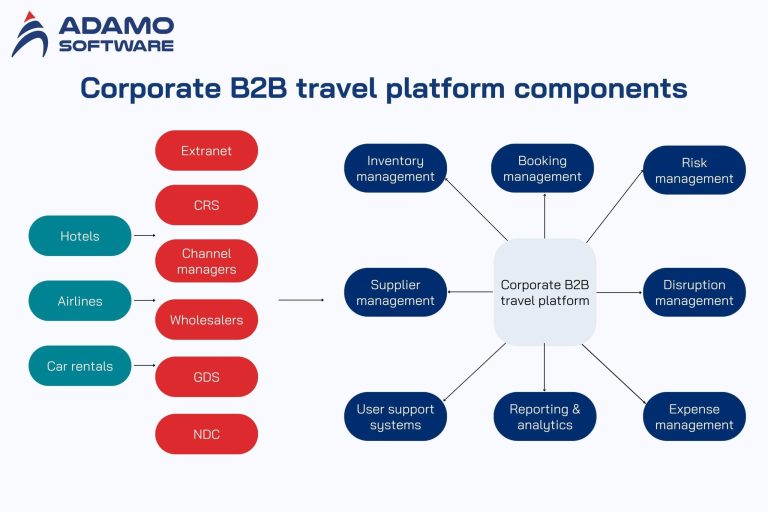Corporate Travel Booking Platform Streamlined Solutions
Corporate travel booking platform is a crucial tool for businesses seeking efficient and cost-effective travel management. It streamlines the entire process, from initial booking to expense reporting, enabling companies to control costs and enhance employee travel experiences. These platforms offer a wide range of features tailored to specific business needs, from basic booking tools to sophisticated reporting and analytics.
This platform typically encompasses various functionalities, including integrated booking engines, secure payment processing, travel policy management, and robust reporting capabilities. Different platforms cater to diverse organizational sizes and needs, ranging from small businesses to large enterprises. Understanding the key features and benefits of a corporate travel booking platform is essential for companies seeking to optimize their travel expenditures and improve employee satisfaction.
Introduction to Corporate Travel Booking Platforms
A corporate travel booking platform is a specialized software solution designed to streamline and manage all aspects of business travel for companies. These platforms offer a centralized system for booking flights, hotels, and other travel arrangements, automating processes and optimizing costs. They play a crucial role in improving efficiency and control over travel expenditures.
These platforms are instrumental in consolidating travel arrangements, enhancing reporting and analysis capabilities, and ensuring compliance with company policies. They provide a comprehensive overview of all travel activities, facilitating cost control and informed decision-making.
Key Functionalities of a Corporate Travel Booking Platform
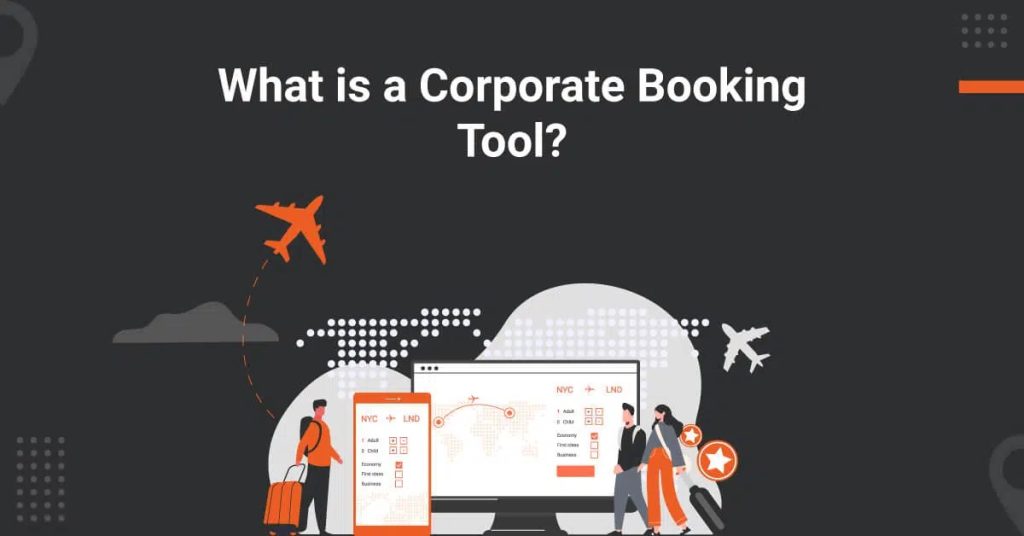
Corporate travel booking platforms provide a wide array of functionalities to streamline the entire travel process. These platforms typically offer a centralized system for managing bookings, enabling companies to track and control travel expenses more effectively. A robust platform facilitates the efficient allocation of resources for travel-related activities.
- Booking Management: The platform allows users to easily book flights, hotels, and rental cars, often with integrated search functionality across multiple providers. This capability simplifies the travel booking process for employees.
- Expense Reporting: Platforms integrate with accounting systems, automating the process of reporting travel expenses. This feature helps companies comply with financial reporting standards and track spending patterns.
- Policy Management: Companies can establish and enforce travel policies directly within the platform. This ensures that all bookings adhere to predefined guidelines, from budget limitations to preferred vendors.
- Reporting and Analytics: The platform generates detailed reports on travel spending, allowing companies to analyze trends, identify areas for cost savings, and measure compliance.
- Integration with other systems: Many platforms integrate with existing corporate systems, such as expense management tools, calendar applications, and procurement systems. This seamless integration reduces manual work and enhances data accuracy.
Types of Corporate Travel Booking Platforms
Different types of corporate travel booking platforms cater to various company needs and sizes. The choice of platform depends on factors like budget, technology infrastructure, and the complexity of travel arrangements.
- Cloud-Based Platforms: These platforms operate on remote servers, accessible via the internet. Cloud-based solutions often offer scalability, flexibility, and lower upfront costs compared to on-premise systems.
- On-Premise Platforms: These platforms are installed and managed on the company’s servers. On-premise solutions provide greater control over data security and customization but require significant upfront investment and IT infrastructure.
Typical Workflow for Booking Corporate Travel
The typical workflow for booking corporate travel involves several steps facilitated by the platform.
- Employee Request: Employees initiate the travel request through the platform, specifying their destination, dates, and travel requirements.
- Approval Process: The platform allows managers to review and approve or reject travel requests, ensuring compliance with company policies and budget constraints.
- Booking Confirmation: The platform automatically confirms the booking with the chosen travel providers, generating all necessary travel documents.
- Expense Reporting: After the trip, employees submit their travel expenses via the platform, which then integrates with accounting systems.
Key Features of a Corporate Travel Booking Platform
A table summarizing the essential features of a corporate travel booking platform:
| Feature Name | Description | Example |
|---|---|---|
| Booking Management | Allows employees to search, compare, and book flights, hotels, and other travel arrangements. | Searching for flights from New York to London in October. |
| Expense Reporting | Streamlines the process of submitting and approving travel expenses. | Submitting receipts and mileage records for reimbursement. |
| Policy Management | Enables the definition and enforcement of company travel policies. | Setting a maximum daily hotel rate or specifying preferred airlines. |
| Reporting and Analytics | Provides detailed reports on travel spending, allowing for analysis and cost optimization. | Generating reports on travel costs per department or trip type. |
Features and Benefits
Corporate travel booking platforms offer significant advantages over traditional methods, streamlining the process and providing businesses with valuable tools for cost management and efficiency. These platforms leverage technology to optimize travel arrangements, enhance communication, and provide comprehensive reporting.
Beyond simple booking, these platforms provide sophisticated features designed specifically for corporate travel needs. This includes robust reporting, advanced filtering options, and tools to track and control expenses. They are not just a booking tool; they are a management system for travel.
Core Differentiating Features
Corporate travel booking platforms are tailored to the specific needs of businesses, distinguishing them from consumer-facing platforms. Key differentiations include robust reporting and analytics, advanced filtering and search capabilities, and integrated expense management systems. These features are critical for businesses seeking to manage travel costs effectively and ensure compliance with corporate policies.
Benefits for Businesses
Implementing a corporate travel booking platform yields several key benefits. Improved cost control is a primary advantage, as platforms track and analyze spending, enabling proactive adjustments and identifying areas for savings. Enhanced compliance with company policies is another significant benefit, as these platforms often integrate with existing policies and procedures. Streamlined travel processes are achieved through automated workflows and integrated communication tools, reducing manual intervention and improving efficiency. Improved reporting and analytics provide a clear picture of travel expenditures, enabling data-driven decisions regarding future travel strategies.
Comparison of Competing Platforms

Different corporate travel booking platforms offer varying features and functionalities. Some platforms specialize in specific aspects of travel management, such as flight booking, while others provide a comprehensive suite of tools. Consideration of specific business needs is critical in selecting a platform. Factors such as the size of the company, the volume of travel, and existing IT infrastructure should be carefully assessed. Furthermore, the platform’s integration capabilities with existing business systems should be evaluated.
Examples of Enhanced Efficiency and Cost Management
A platform with an integrated expense reporting tool can automate the process of submitting and approving travel expenses. This not only saves time but also reduces the risk of errors and inconsistencies. Advanced search filters allow employees to quickly identify preferred hotels or airlines, ensuring a more efficient booking process. Real-time pricing updates can help employees secure the best possible deals on flights and accommodations, ultimately minimizing travel costs. By proactively analyzing historical travel data, a platform can identify patterns that suggest potential cost-saving opportunities.
Comparison Table: Two Prominent Platforms
| Feature | Platform A | Platform B |
|---|---|---|
| Booking Engine | Intuitive, user-friendly interface with robust filtering options. | Advanced booking engine with AI-powered recommendations for optimal choices. |
| Expense Reporting | Basic expense reporting, manual reconciliation required. | Automated expense reporting and reconciliation, integrated with accounting software. |
| Policy Integration | Limited policy integration options. | Comprehensive policy integration, allowing for real-time compliance checks. |
| Reporting & Analytics | Basic reporting dashboards with limited customization. | Customizable reporting dashboards, providing detailed insights into travel patterns and costs. |
| Support | 24/7 phone support, limited online resources. | Comprehensive online support resources, including FAQs, tutorials, and live chat. |
Technological Aspects: Corporate Travel Booking Platform
Corporate travel booking platforms rely heavily on robust technology to streamline the process and enhance the user experience. A well-designed platform ensures seamless booking, cost-effective solutions, and optimized travel arrangements. This section delves into the critical technological underpinnings of these platforms.
Technical Architecture
The architecture of a corporate travel booking platform is typically multifaceted, encompassing various components working in tandem. It often involves a combination of cloud-based services, databases, and application programming interfaces (APIs) to manage complex tasks efficiently. A key component is a robust database that stores crucial information like user profiles, travel preferences, and historical booking data. This data is frequently accessed and manipulated by different parts of the system, including user interfaces, reporting tools, and payment gateways. Scalability and reliability are paramount in this architecture, allowing the platform to handle a substantial volume of transactions and user requests.
Security and Data Privacy
Ensuring the security and privacy of sensitive data is critical for corporate travel booking platforms. Data breaches can lead to substantial financial and reputational damage for companies and their employees. Strong encryption protocols, multi-factor authentication, and regular security audits are essential components of a secure platform. Compliance with relevant data privacy regulations, such as GDPR, is also a critical factor. This commitment to security and privacy fosters trust and confidence among users.
Integration Capabilities
Corporate travel booking platforms often need to integrate with other business systems within a company. This integration allows for seamless data flow and reduces manual effort. Integration with enterprise resource planning (ERP) systems can synchronize travel costs with company budgets, enabling better financial management. Integration with expense reporting systems ensures that travel expenses are properly documented and reconciled. Furthermore, seamless integration with internal booking systems or calendars ensures that the booking process is well-synchronized and optimized for all stakeholders.
Role of APIs
Application Programming Interfaces (APIs) play a crucial role in connecting the travel booking platform to various external systems. APIs provide a standardized way for different applications to communicate and exchange data. For instance, an API can be used to connect to hotel booking systems, enabling users to search for and book accommodations directly within the corporate platform. This integration streamlines the process and enhances user experience. APIs also facilitate the integration with various airline reservation systems, car rental companies, and other travel suppliers. This connectivity offers a wide array of options for users to find the most suitable travel arrangements.
Integration with Hotel Booking Systems
Integration with hotel booking systems significantly enhances the user experience. By connecting directly to a variety of hotel booking systems, the platform can offer a comprehensive search and comparison feature, allowing users to quickly identify the most suitable hotels based on their criteria. This feature, combined with real-time availability and pricing, empowers users to make informed decisions, optimizing their travel arrangements. Integration with hotel booking systems also allows for automatic room allocation and confirmation, further simplifying the booking process.
User Experience and Interface
A seamless user experience is paramount for a corporate travel booking platform. Intuitive design and efficient workflows minimize administrative burden on travel managers and empower employees to book trips quickly and easily. A well-structured interface also ensures compliance with company policies and facilitates accurate expense reporting.
Ideal User Interface Design
The ideal user interface should prioritize clarity, simplicity, and consistency. A clean, modern design with intuitive navigation is crucial. Visual cues, such as color-coding and icons, should enhance usability and help users quickly locate specific information. Responsive design is essential to accommodate various devices, ensuring accessibility across desktops, tablets, and mobile phones. Search functionality should be robust and allow for filtering by various criteria, including destination, dates, and employee.
User Pain Points in Corporate Travel Booking
Common pain points in corporate travel booking include navigating complex policies, lengthy booking processes, inaccurate expense reporting, and difficulties in tracking booking history. Lack of transparency in policy management often leads to errors and delays. Inconsistent expense reporting formats increase administrative overhead and hinder accurate financial tracking. Poorly designed interfaces contribute to user frustration and inefficiency.
User Dashboard Design
A well-designed user dashboard provides a centralized hub for all travel-related activities. The dashboard should include distinct sections for booking history, policy management, and expense reporting.
- Booking History: This section displays a comprehensive history of all bookings, including dates, destinations, flight details, and associated costs. Filtering options allow users to quickly locate specific trips by date range, employee, or destination. Each booking should have clear status indicators (e.g., approved, pending, cancelled). Download options for booking details and receipts should be readily available.
- Policy Management: This section articulates the company travel policies, including expense limits, preferred vendors, and acceptable accommodation types. A user-friendly interface allows for easy navigation and quick access to specific policy details. Users should be able to easily search and filter policies by category. Visual aids, such as flowcharts or diagrams, can enhance understanding of complex policies. The section should also feature a notification system that alerts users to policy updates.
- Expense Reporting: This section streamlines the expense reporting process. Users can easily input details of their travel expenses, such as accommodation costs, transportation, and meals. The system should automatically categorize expenses based on predefined company policies. A detailed breakdown of expenses should be presented, including supporting documents. Integration with accounting systems allows for automated expense processing and reconciliation.
User Role Interaction
The platform should accommodate various user roles, each with tailored access and functionalities.
- Travel Managers: Travel managers can manage company-wide policies, approve or reject employee bookings, and oversee expense reports. The dashboard provides an overview of pending bookings, policy violations, and expense claims, allowing for efficient management of travel activities.
- Employees: Employees can view and book trips based on company policies. The platform should provide clear guidance on permissible travel options, enabling employees to make informed decisions. The employee dashboard should allow them to track their booking history, submit expense reports, and communicate with travel managers.
Market Trends and Future Developments
Corporate travel booking platforms are experiencing a dynamic evolution, driven by shifting market demands and technological advancements. This section delves into current market trends, emerging technologies, and the anticipated future trajectory of these platforms, with a particular focus on sustainability and mobile-first features.
The corporate travel landscape is in constant flux, with companies increasingly seeking streamlined, cost-effective, and sustainable travel solutions. This is reflected in the growing sophistication of corporate travel booking platforms, moving beyond basic booking functionalities to encompass a wider range of features and services.
Current Market Trends
The current market is witnessing a strong emphasis on user experience and personalization. Companies are prioritizing platforms that offer intuitive interfaces, real-time data, and customized travel options tailored to individual employee needs. Integration with existing company systems, such as expense management software and HR platforms, is also becoming a critical factor for businesses seeking seamless workflow.
Emerging Technologies
Artificial intelligence (AI) and machine learning (ML) are transforming corporate travel booking platforms. AI-powered tools can predict optimal travel times, identify cost-saving opportunities, and suggest personalized itineraries, significantly enhancing the efficiency of the travel process. Predictive analytics, leveraging historical data, can also provide valuable insights into future travel patterns and potential cost fluctuations. Examples include automated fare comparisons, route optimization, and dynamic pricing adjustments.
Future of Corporate Travel Booking Platforms
The future of corporate travel booking platforms will likely be characterized by even greater integration with other business systems. This will result in more streamlined workflows and automated processes, minimizing manual intervention and improving overall efficiency. Furthermore, platforms will likely offer more advanced analytics and reporting tools to provide businesses with detailed insights into their travel expenditures, helping to identify areas for cost optimization and sustainability improvement. For instance, companies like Booking.com and Expedia have already integrated AI into their platforms to provide personalized recommendations and optimize pricing.
Sustainability in Corporate Travel
Sustainability is becoming a critical factor in corporate travel decision-making. Corporate travelers are increasingly aware of the environmental impact of their journeys, and companies are responding by incorporating sustainability features into their travel platforms. These features include carbon offsetting calculators, options for eco-friendly transportation, and the ability to filter travel options based on sustainability criteria. For example, some platforms now offer direct integration with carbon offsetting programs.
Emerging Mobile-First Features, Corporate travel booking platform
Mobile-first features are gaining prominence as employees increasingly access corporate travel platforms through their mobile devices. These features include seamless booking and management of travel arrangements from mobile devices, real-time updates on flight and accommodation status, and the ability to instantly access and update travel policies. Enhanced mobile functionality is essential to cater to the ever-increasing use of mobile devices in the corporate environment. Platforms are incorporating features such as mobile-optimized booking forms, real-time itinerary updates, and secure mobile payment options.
Case Studies and Examples
Corporate travel booking platforms are proving invaluable to businesses seeking cost-effective and efficient travel management. Numerous companies have successfully leveraged these platforms to streamline their travel processes, reduce costs, and enhance employee satisfaction. This section explores key examples of successful implementations and highlights the positive impact on various organizations.
Examples of Successful Corporate Travel Booking Platforms
Several prominent companies have developed robust and user-friendly corporate travel booking platforms. These platforms often integrate with existing business systems, providing seamless data exchange and reporting. Examples include Concur, SAP Ariba, and Travelport, each catering to different business needs and scales. These platforms typically offer features such as automated expense reporting, policy management, and real-time booking confirmations, enabling organizations to optimize their travel spend.
Positive Impact on Businesses
Implementing a corporate travel booking platform can yield significant benefits for businesses. Reduced administrative burden frees up valuable employee time, allowing them to focus on core business functions. The platform’s robust reporting features enable businesses to track and analyze travel expenses, identify cost-saving opportunities, and ensure compliance with company policies. Data-driven insights allow businesses to make informed decisions and optimize their travel budget.
Cost Savings and Efficiency Improvements
Corporate travel booking platforms facilitate substantial cost savings. By offering negotiated rates with airlines and hotels, these platforms can reduce the overall cost of travel. Automated booking processes minimize manual intervention, accelerating the booking process and avoiding errors. Real-time pricing and dynamic options ensure businesses are presented with the most competitive travel arrangements. Effective reporting capabilities provide businesses with clear insights into travel expenditure, empowering informed decisions to optimize future bookings.
Visual Representation of a Successful Travel Booking Platform Dashboard
A well-designed dashboard provides a comprehensive overview of travel bookings. This visual representation illustrates key metrics and facilitates swift analysis.
| Metric | Value | Trend |
|---|---|---|
| Total Travel Expenses | $120,000 | Decreased by 15% YoY |
| Average Booking Time | 2 minutes | Stable |
| Number of Bookings | 350 | Increased by 10% MoM |
| Flights with Direct Bookings | 280 | Increased by 20% YoY |
| Total Cost Savings (Year-to-Date) | $5,000 | Increasing |
Sustainability Initiatives
Many corporate travel booking platforms integrate features that support sustainable travel practices. These platforms can allow businesses to track carbon emissions associated with specific trips, enabling the identification of opportunities for reducing environmental impact. Options for eco-friendly accommodations and transportation can be prioritized within the booking process. Reporting tools provide data-driven insights for implementing more sustainable travel policies. Furthermore, some platforms offer the ability to incentivize employees to select sustainable travel options, promoting environmentally conscious travel habits within the organization.
Pricing and Implementation
Corporate travel booking platforms offer a range of pricing models, catering to different business needs and budgets. Understanding these models is crucial for organizations seeking to optimize their travel spending and streamline their travel management processes. The implementation process, from initial setup to ongoing maintenance, is also a critical factor in successful platform adoption.
Pricing Models
Different pricing models cater to diverse corporate travel needs. A common model is a per-user, per-month subscription, offering predictable costs. Another model, a usage-based approach, charges based on the number of bookings or transactions. Furthermore, some platforms adopt a tiered pricing structure, with different features and levels of support available at various price points. Each model has advantages and disadvantages that organizations should carefully evaluate about their specific travel volume and requirements.
Implementation Process
The implementation process typically involves several key stages. First, a thorough needs assessment is conducted to determine the platform’s capabilities and features that align with the organization’s travel policies and preferences. Next, the platform is configured to match the company’s specific needs. Integration with existing systems, such as enterprise resource planning (ERP) systems or expense management tools, is a critical step. Finally, comprehensive training for employees on the new platform is vital for successful adoption.
Deployment Models
The choice between cloud-based and on-premise deployment models depends on various factors, including budget, IT infrastructure, and data security needs. Cloud-based platforms offer scalability, flexibility, and reduced upfront costs, but require reliable internet connectivity. On-premise solutions provide greater control over data and infrastructure, but demand significant upfront investment in hardware and maintenance. The selection of a deployment model must consider the organization’s specific circumstances.
Cost Breakdown
The total cost of ownership (TCO) for a corporate travel booking platform encompasses several components. Setup costs include platform licensing, initial configuration, and data migration. Maintenance costs cover ongoing platform updates, support, and potential system upgrades. Employee training is crucial for efficient platform utilization and should be included in the cost estimation. Examples of these costs include platform licensing fees, implementation services, and ongoing maintenance contracts.
| Cost Category | Description | Typical Range (USD) |
|---|---|---|
| Platform Licensing | Initial cost of acquiring the platform | $5,000 – $50,000+ |
| Implementation Services | Setup, configuration, and integration | $2,000 – $20,000+ |
| Data Migration | Transferring existing travel data | $1,000 – $10,000+ |
| Annual Maintenance | Platform updates, support, and upgrades | $1,000 – $10,000+ per user |
| Employee Training | Training materials, instructors, and time | $500 – $5,000+ per employee |
System Integration
Integrating the platform with existing systems is crucial for seamless data flow. A detailed plan outlining the integration process is necessary. This plan should define the specific data points to be exchanged, the integration methods (APIs, middleware, etc.), and the required technical resources. Successful integration ensures data accuracy and reduces manual effort.
Ending Remarks

Source: spotnana.com
In conclusion, a well-designed corporate travel booking platform offers substantial benefits for businesses, from improved cost management to enhanced employee experience. Modern platforms integrate seamlessly with existing business systems, offer advanced security features, and often incorporate AI and machine learning to optimize travel arrangements. Choosing the right platform involves careful consideration of specific business needs, pricing models, and long-term strategic goals. As the travel industry continues to evolve, the role of these platforms will only become more crucial in supporting business travel efficiency.
